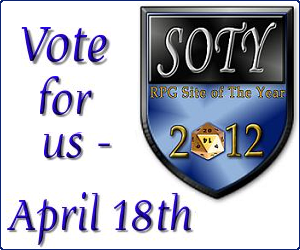There are many kinds of problem players out there. Me? I was one of them. I memorized rule books and when my group wanted a stat on an NPC or how a power worked, they would hand the book to me and I would flip the book open to the exact page. In most cases I probably knew the information anyway but they wanted to see it for themselves.
I did this for twenty one games we had actively been playing. (I find it hilarious now when I forget rules that I wrote.) Why did I do this when I wasn’t the GM? One reason was that I just really like mechanics, I like well made systems. So to understand the ins and outs of a game is fun for me. (Sick huh?)
That’s the happy side of my player behavior but I would go further than that. I would also use my knowledge for evil, I was a rules lawyer! So why did I create chaos and strife at the table because of the interpretation of a rule? Why did I argue about minutia of words?
The first reason is that I was immature. I argued about a lot of things, I debated subjects endlessly. An argument was like a mental wrestling match to me and I enjoyed winning. All I can say is that it was probably the testosterone. How does a GM deal with that? One, talk privately to your rules lawyer about it. If it is a form of aggression that’s causing the arguments, then having a public debate is going to get them in a fighting mood. I can’t guarantee a calm discussion privately, but it should be at least better. Explain that the arguments are stopping game play and that hurts the other players.
The second reason was tactics. I would string together information on how “best” to beat an enemy. When the GM didn’t stick to the rules as I had understood them (sometimes it was a difference of how to interpret a single word) it would invalidate a strategy that I wanted to use. Frequently I’ll admit I was actively trying to break the system to my advantage. On occasion I just wanted to use an exploit to do something cool. This makes a GM’s job a little harder, you want your players to be able to do cool things because. . . it’s fun. You don’t want them breaking the game so that it can’t be played anymore though. In those cases you have to plug the hole with a house rule. Explain to your rules lawyer why breaking the game is bad. One successful tactic that defused me in the past was the GM saying that the exploit could be used this first time but it could not be used again. I would get the reward I was looking for, the GM would plug the hole, nobody’s perfectly happy but it’s usually good enough.
The third reason was fear. It’s scary to have a GM wield unlimited power over you. I looked to the rules to be a kind of safety blanket that would protect me from unreasonable rulings. You have to remember we were teenagers and the GM was not always guided by the high principles that we’ve come to think a GM should be. A rules lawyer may be reacting because they feel they are being treated unfairly. They want to play the game, they just don’t agree that how it’s being played is fun. In this case the GM should think about maybe changing the atmosphere that they’re setting the game in. It may be that the GM is going for dark and gritty and the player wants heroic.
When it comes down to it, rules lawyers like systems. They like to have a protection and a tool they can use to influence the game. They’re probably a bit power hungry. As a GM, you may want to have a grievance system for you games. Let them write their complaints down and at the end of the game read it to the group. Vote on if the grievance should change how the rule was interpreted in the future. The grievance is the only chance the player will have to argue their point, they don’t get to argue it during or after the discussion. This is to avoid the discussion becoming heated.
I haven’t tested the grievance system, I don’t have any rules lawyers of my own at the moment. If you do, test it out and let us know if it works.




 The Free RPG Blog
The Free RPG Blog